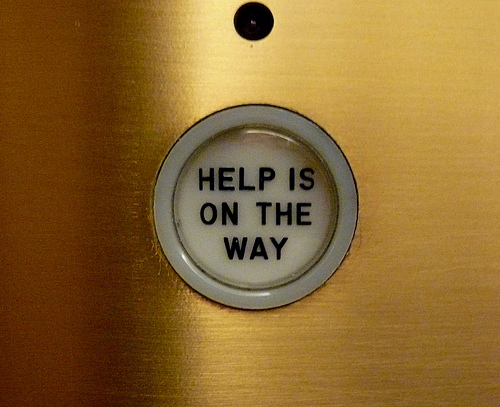 A client of mine has a second interview scheduled and the employer has already asked for references. That’s a very positive sign. I gave her some guidelines for making the most of the reference process.
A client of mine has a second interview scheduled and the employer has already asked for references. That’s a very positive sign. I gave her some guidelines for making the most of the reference process.
- Line up references in advance of your applications and interviews, if you can. People can be hard to get hold of, so you want to prepare people in advance so there isn’t a huge rush at the end of the process. You want to get the best references possible, not simply the best references available. You can get references from anyone who knows your work ethic, style, results, attitude:
- former bosses
- your current boss (if your search is an open one – otherwise skip that!)
- past and current colleagues
- former or present subordinates who really respect you
- a long-time friend who knows you in a work or volunteer context
- a volunteer supervisor if you’ve volunteered a lot (one client parlayed her volunteer experience into a job because of the reference she got)
- a client or vendor
- a Board member of your organization or a fellow Board member if you serve on a Board
- a professor (especially if you are in school or a recent grad)
- your clergyman (again, if s/he knows your work ethic, e.g. you’ve been on the synagogue Board or an Elder in your church)
- an industry colleague who knows your work
- Ask people who you know will say good things about you to act as a reference and get them to agree to serve as a reference. There’s nothing worse than getting a surprise call to be a reference for someone. Maybe I won’t answer the phone because I don’t know the caller, or won’t return the call quickly. That reflects badly on you, the applicant. Plus, it annoys me that you didn’t ask me, get my permission to give out my contact information, or give me any kind of heads up about the position. So I might not be so kind in giving a reference…or at least not as kind as I would have been had you simply asked. I had one person give my name and unfortunately I wasn’t able to be very helpful because I hadn’t worked with him very long or recently. If he had called me and I’d learned more about the job and why he wanted to do it, I could have been much more positive and factual about him. As it was, all I could say was that I remembered him being diligent. That is what’s known as faint praise.
- Prep references to say the right things by describing the position, identifying one or two elements that are central to the job, and suggesting that they could speak to that because of their experience with you in that kind of role or with that kind of responsibility. Really emphasize why you want the job and why you think you’d be great at it. You can even ask the person if and why they think you’d be good for the job. It helps the person pre-think what they’ll say to the employer. Ask them if they’d be able to say they’d hire you if they had a position. If so, you will get a great reference from them. If not, you may want to rethink using that person as a reference.
- Give some context to your prospective employer. Describe to the employer’s staff doing the reference check who your references are and what role they played vis a vis you so they have some context and an opening for the conversation. If you are giving a former boss’s name, say that the person was your boss. That person’s opinion will carry more weight than a co-worker, colleague, friend, or subordinate.
- Alert your references when they’re about to be contacted. Once you’re at the point in the job interview process where you’re asked for references, let your references know you’ve given their name and they can expect a call in the next couple of days. Ask them to let you know when or if the call comes,
- Don’t ask your references to debrief the call. that can be awkward especially if they are asked a question like “what weaknesses does Sheilah have?” I’ve been a reference for many people and I know that I have to answer that or they won’t take my reference seriously. So I say something along the lines of what the person has worked on, improved in, the positive aspects of that, how impressed I was that they learned xyz. People always get the jobs when I do the referral. So you might think about suggesting to people that you anticipate such a question and hopefully they’ll be comfortable answering it in an honest yet positive way.
- THANK your references, and by all means let them know what happens whether you are offered the job or not.
Once in a while, you’ll get a dud reference and you’ll know this because all of a sudden you’re not hearing from your prospective employer. If you think for a second, you’ll know who it was that wasn’t helpful. Don’t expect them to ‘fess up when you say you didn’t get the job. Simply cross them off your list for the future, and find someone better.


